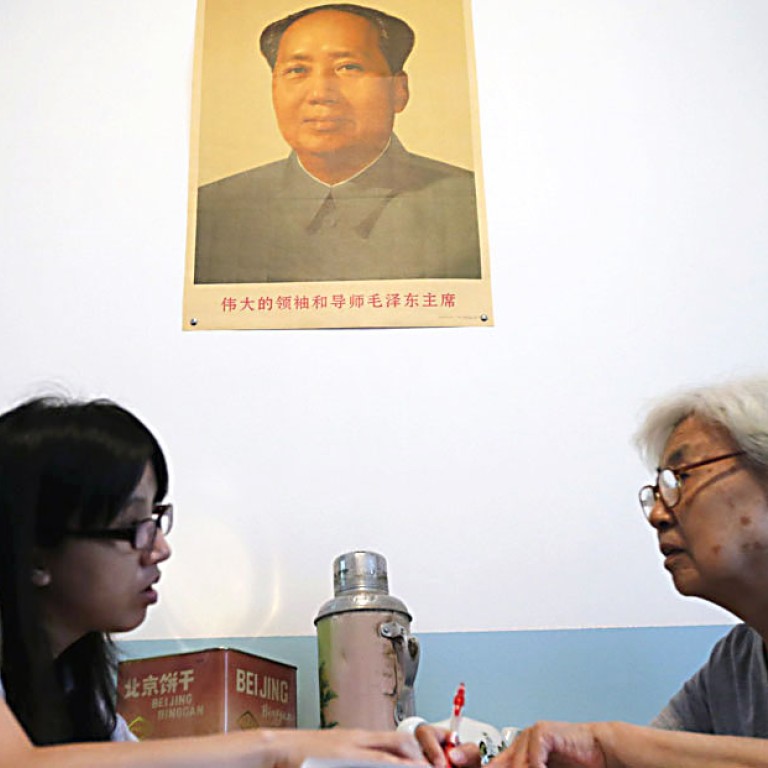
Nation ill-prepared for Alzheimer's epidemic sweeping growing ranks of elderly
The mainland has some nine million dementia sufferers and only 300 specialists to treat them
When 71-year-old Shi Anquan chops firewood or visits the market in his village in the barren mountains north of Beijing, his wife Yuhua, also 71, plods quietly behind. Shi, a farmer, has given up tilling the land to devote himself full time to his wife's care, reminding her to bathe and change her socks.
Yuhua is one of some nine million dementia sufferers on the mainland - who have barely 300 qualified doctors to treat them. The shortage is overwhelming families and threatening resources from an already stretched welfare system as the population grows older.
The village's single nursing home will not take patients with mental disease. The nearest hospital does not have dementia specialists. Shi must travel with his wife to visit doctors in Beijing, a three-hour trip each way with two bus changes.
The mainland has the world's largest group of Alzheimer's sufferers, according to an article last year in the medical journal . Many countries struggle with Alzheimer's, but the stakes are higher on the mainland, where the numbers are poised to balloon as the population ages and rapid industrialisation boosts risk factors such as pollution and diabetes.
The national life expectancy has increased by seven years to 76 since 1990. The flip side of that progress is that an ageing population has combined with rapid modernisation to fuel a rise in mental illness from depression to Alzheimer's even as the nation has directed only limited resources toward the elderly.
"Caring for most dementia sufferers in China is left to family members with limited or no training or support from the state and at considerable physical, psychological and financial costs to caregivers," said Kit Yee Chan, lead author of the article.
There were an estimated 5.7 million patients with Alzheimer's, the most common form of dementia, in China in 2010, 53 per cent higher than a decade earlier and twice as many as earlier estimated by the international health community, according to the study.
While local doctors suspected Alzheimer's, the county hospital did not have a specialist unit to make a formal diagnosis and the anti-psychotic prescribed there left her constantly dazed.
Last year, a distant relative mentioned a woman in a neighbouring village who improved after seeing Yu Xin, a doctor and professor of clinical psychiatry at the Institute of Mental Health at Peking University. The couple made the journey last July to visit Yu, who has since been treating Yuhua with an anti-depressant that has milder side effects than her previous medication.
The couple now lives with their youngest son's family in the same house where Yuhua once ruled the roost.
"Now, I wake up in the middle of the night to cover her with the blanket because she can't even do it herself," said Shi, who must also contend with his own heart condition. "How can I mind doing this, she's looked after me for 50 years. I only hope I can stay healthy to take care of her."

